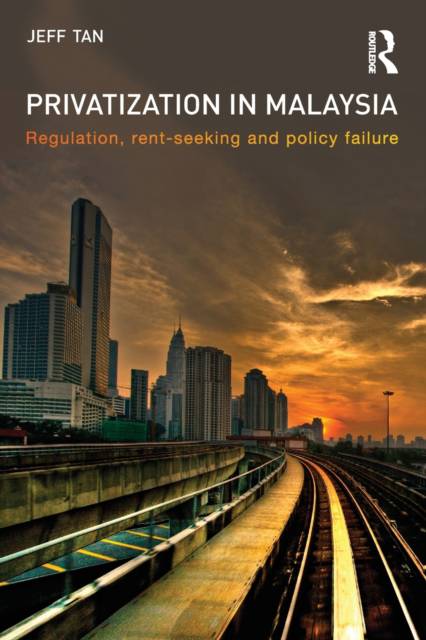
- Afhalen na 1 uur in een winkel met voorraad
- Gratis thuislevering in België vanaf € 30
- Ruim aanbod met 7 miljoen producten
- Afhalen na 1 uur in een winkel met voorraad
- Gratis thuislevering in België vanaf € 30
- Ruim aanbod met 7 miljoen producten
Omschrijving
In recent years, privatisation has fallen out of favour in many countries because the underlying political factors have not been well understood. This book examines Malaysia's privatisation programme, focusing on how political constraints resulted in the failure of four major privatisations: the national sewerage company (IWK), Kuala Lumpur Light Rail Transit (LRT), national airline (MAS), and national car company (Proton). It considers why developing countries such as Malaysia might want to embark on privatisation, the factors that lead to policy failure, and what is needed to make it work. It shows clearly that political motives driving privatisation often dominate purely economic considerations, and thus it is necessary to analyse privatisation within the specific country context. It argues that failure in the Malaysian case was due to political considerations that compromised institutional design and regulatory enforcement, leading to problems associated with corruption. It concludes that privatisation does not necessarily improve incentives for efficiency or enhance the finance available for capital investment, and that successful privatisation depends on the state's institutional and political capacity to design and manage an appropriate set of subsidies. Overall, this book is a comprehensive examination of privatisation in Malaysia, providing important insights for understanding the political economy of this process in other developing countries.
Specificaties
Betrokkenen
- Auteur(s):
- Uitgeverij:
Inhoud
- Aantal bladzijden:
- 252
- Taal:
- Engels
- Reeks:
Eigenschappen
- Productcode (EAN):
- 9780415545372
- Verschijningsdatum:
- 13/09/2011
- Uitvoering:
- Paperback
- Formaat:
- Trade paperback (VS)
- Afmetingen:
- 156 mm x 234 mm
- Gewicht:
- 358 g

Alleen bij Standaard Boekhandel
Beoordelingen
We publiceren alleen reviews die voldoen aan de voorwaarden voor reviews. Bekijk onze voorwaarden voor reviews.











